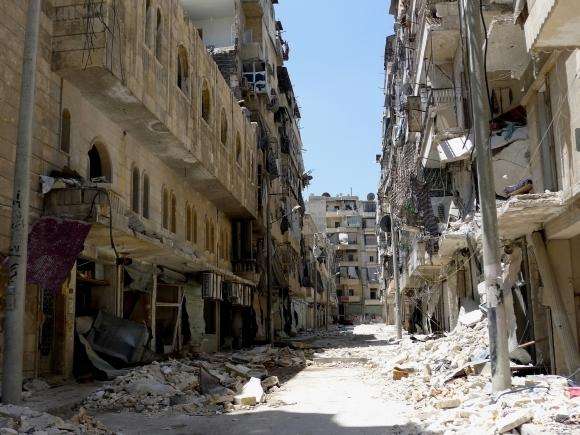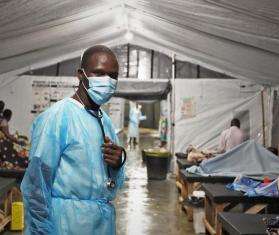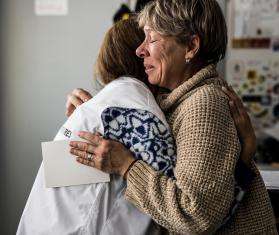Click Here to Read the Full Report
Executive Summary
“You could be sleeping. You could be walking to the shop. At any time a bomb can happen,” says an MSF health worker in one of the hospitals the organization runs in northern Syria. This report aims to depict the dreadful humanitarian situation in and around the city of Aleppo, particularly after December 2013, when Syrian government forces ramped up its aerial bombing campaign in this strategic area of the country.
Employing barrel bombs as its weapons of choice, the Syrian military has killed and wounded thousands of people and devastated the city’s infrastructure and homes. These bombs are intentionally dropped in densely populated areas, indiscriminately claiming everything as a target and creating a pervasive climate of terror.
Press Release: In Syria, Medical Aid Paralyzed by Four Years of Conflict
Many have been maimed for life. Many have lost limbs. The wounds are made even worse by enforced shortages of medical equipment and poor levels of post-operative care in the area. In many cases, doctors must carry out amputations that could have been avoided under better circumstances.
Beyond that, the lack of supplies and qualified medical staff have almost completely undercut access to health care of any kind for Aleppo residents, at great cost. At the beginning of Syria’s conflict, there were an estimated 2,500 doctors working in Aleppo. There are now fewer than one hundred working in the medical structures still operating in the city. The rest have fled, been kidnapped, or been killed.
Whole neighborhoods have emptied. Those who remain behind, with their houses destroyed and electricity lines severed by bombings, have been forced to use open stoves and other home-made combustible devices for heating, leading to domestic accidents and burns, particularly among children. Again, treatment options are limited given the lack of supplies and expertise.
Op-Ed: An Unacceptable Humanitarian Failure in Syria
MSF teams have also observed an increase of obstetrical complications due to the exposure of pregnant women to stress, as well as the lack of antenatal care for prevention and treatment of complications such as preeclampsia. This in turn increases the risks of preterm deliveries, miscarriages, and low birth weights for newborns. Neo-natal care for premature babies is extremely difficult to find as well. Vaccination campaigns have likewise been interrupted, and diseases once unheard of in the area are now afflicting the city’s children.
Aleppo is hardly the only city in Syria that’s been ravaged by the conflict, but its status as the country’s formerly vibrant economic hub gives its current state an added resonance. Now almost completely deserted and destroyed, its remaining residents battered physically and psychologically, it embodies both the descent into chaos the country as a whole has experienced, as well as the huge gulf that exists between the assistance that people need and the assistance the world has been able to provide.




